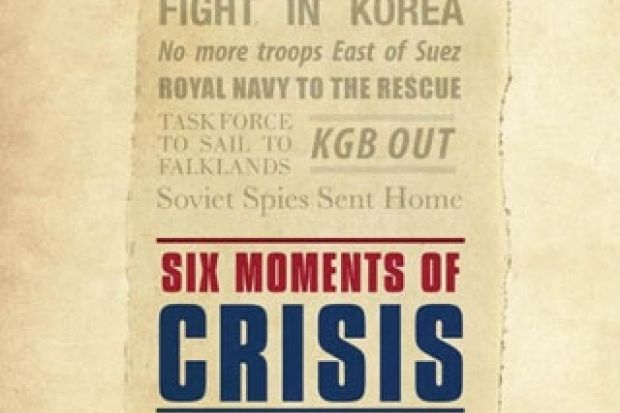Gill Bennett’s career has been spent not in universities but in Whitehall, culminating in the post of chief historian at the Foreign and Commonwealth Office, the only government department still to employ full-time historians. Her task was to document the official history of foreign policy and offer historical advice. This gave her both a vantage point and “a wonderful opportunity - to get inside history”.
Six Moments of Crisis seeks to take advantage of this opportunity by analysing six foreign policy challenges. Three are challenges to a person: to Egyptian president Gamal Abdel Nasser at the time of the Suez crisis; to French president Charles de Gaulle when in 1961 the UK first applied to join the European Economic Community (as the European Union was then known); and to Leopoldo Galtieri, president of Argentina, when his country invaded the Falklands in 1982. And three are challenges to concepts: to communism, when in 1950 Britain decided to send troops to Korea and in 1971 to expel 105 Soviet officials, widely thought to be spies; and to the UK’s global role, when in 1968 the government decided to abandon a presence east of Suez.
The book focuses on the key Cabinet meetings at which the decisions were made. Bennett insists that it is ministers, not officials, who decide, and that the forum in which they decide is the Cabinet. Her analysis is based almost entirely on the Cabinet minutes, supplemented for the decisions on Korea, Suez and entry into Europe by the Cabinet secretary’s notebooks, which are far more informative than the rather anodyne minutes. At the time of Suez, for example, the notebooks make it clear that the government’s aim was not only to recover international control of the Suez Canal Company but also to “unseat” Nasser.
History based on a close study of government archives provides a welcome corrective to oversimplified criticism by outsiders of complex decisions. But it also makes it too easy to dismiss the critics
Bennett is thoroughly at home in the world of high politics. She is skilled at interpreting documents and understands that written sources can obscure as much as illuminate. Nevertheless, documents compiled at the time are likely to prove more reliable than interviews carried out long after the event, when ministers can all too easily be tempted to gloss over their actions and motives.
History based on a close study of government archives provides a welcome corrective to oversimplified criticism by outsiders of complex decisions. But it also makes it too easy to dismiss the critics. Although Six Moments of Crisis is not an official history, the fact that only the arguments of the government and not of its opponents appear in the minutes means that the historian may too easily be led to the conclusion that the government’s case was incontrovertible and the final decision inevitable. Insider status, therefore, is by no means an unmixed blessing.
Bennett’s method works best when she analyses situations where the government reacted to decisions made by others, as in the case of the expulsion of the Soviet spies or the invasion of the Falklands. It is perhaps less successful when a decision, such as that to seek membership of the EEC, is the outcome of a long period of creative thought by ministers, and the key considerations are not necessarily those presented at Cabinet. Harold Macmillan, for example, was surely influenced in his approach to Europe by the collapse of the four power Paris summit in spring 1960, which showed that his role as an honest broker between East and West was played out. But the summit is not mentioned either in the Cabinet minutes or in the narrative.
On occasion, a decision may have been almost predetermined by someone not present at Cabinet. In the case of the Korean War, Bennett is right to stress the very great influence of Sir Oliver Franks, the British ambassador in Washington at the time and a man of exceptional authority with great sensitivity to US feelings. His advice that Britain should send troops to augment the US-led international force had such weight that it was virtually impossible for the Cabinet to ignore it; and so ministers decided to reverse a decision made just three weeks before by the Defence Committee chaired by the prime minister.
Six Moments of Crisis does not provide any fundamentally new interpretation of the crises it discusses. But its great strength lies in the author’s understanding of how foreign policy decisions are made. This makes it a wonderful text for the student of international relations, whom it will immunise against infection by arcane concepts and theories that bear little relation to the real world. It is, moreover, beautifully written and an object lesson for academics in history and the social sciences.
Six Moments of Crisis: Inside British Foreign Policy
By Gill Bennett
Oxford University Press, 240pp, £20.00
ISBN 9780199583751
Published 14 February 2013
Register to continue
Why register?
- Registration is free and only takes a moment
- Once registered, you can read 3 articles a month
- Sign up for our newsletter
Subscribe
Or subscribe for unlimited access to:
- Unlimited access to news, views, insights & reviews
- Digital editions
- Digital access to THE’s university and college rankings analysis
Already registered or a current subscriber? Login




